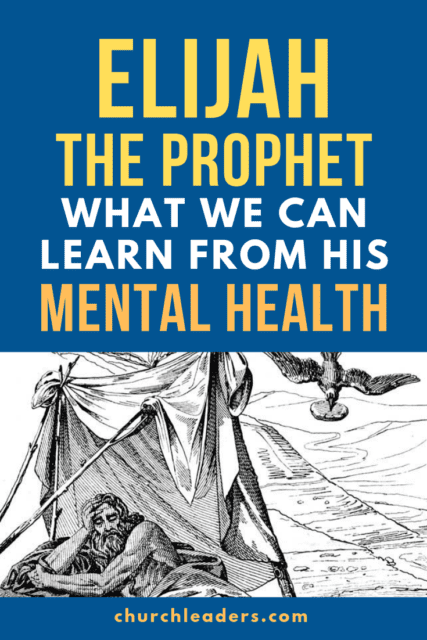Lessons From Elijah’s Story
From the pulpit to the pews, many are facing mental health issues, and many more will be affected by those who respond inappropriately to those with mental illness. They’ve heard it all before: “Just pull yourself together and pray more faithfully,” “You feel like this because your faith is weak,” “I can’t see anything wrong with you. Cheer up; this problem will pass,” “You will be ok.”
We understand that everyone’s circumstances can be different, but just knowing someone cares can make a monumental difference. We need caring and not judging, not criticizing, not shaming, not pretending. Life doesn’t always go the way we plan. Stress, anxiety, and depression are illnesses, not a mark of a faith lying shattered on the floor. All of us know that it probably takes greater faith to hold on to God in the depths of depression than it does when everything’s hunky-dory.
Maybe that’s why God honors Elijah’s detour to Horeb rather than condemn him for it; the prophet runs away and wants to die in a dead zone, but God still shows up, God is still on Elijah side, and God is on our side this very day. We of God.
There will be people in our pews and pulpits whose secret journey into our sanctuaries and into the pastoral office has been just as fraught as Elijah’s walk to the holy mountain. And that’s when we must turn down the noise and let the whispers of God drown out our biases, our preconceptions, our judgments, and our inability to see the pain in front of us, and just love.
We all need to clearly understand that what is happening to others can happen to every one of us as well. It’s not just those who can’t face waking up in the morning who need to hear the still, small voice of God. It’s not just those who are scared all the time, not just those who can’t shut up the stressed-out babel in their minds—it’s all of us because any one of us could soon find ourselves in the same situation. We all have our weak moments, but that doesn’t mean that we are not strong or invaluable to the church.
Anyone of us could find ourselves sitting on a mountain, so let’s work to make it easier for people to hear God’s voice over the earthquake. It’s an opportunity to survive the rushing flood waters; let’s work to make sure people have the help they need to climb the mountain so they don’t sit up there feeling alone and in a state of spiritual, physical, and mental depravity. Whom the Son sets free is free indeed.
Those of us who have a mental illness are sometimes told our mental illness is our fault because we lack faith. This is not the case. Mental illness is a biological disorder and can affect anyone, just as it affected Elijah the Prophet in his spiritual leadership role.
When pastors, church leaders, and those serving in authority chose to be vocal and visible in sharing their stories about their own recovery and daily experiences, it is a strength and support to others who suffer from mental illnesses, and something powerful begins to happen. When pastors and leaders fight for the mental wellness of the people who follow them, there is an igniting of hope and survival. From a pastoral point of view, there is a need to take a more proactive role in mental health concerns.














